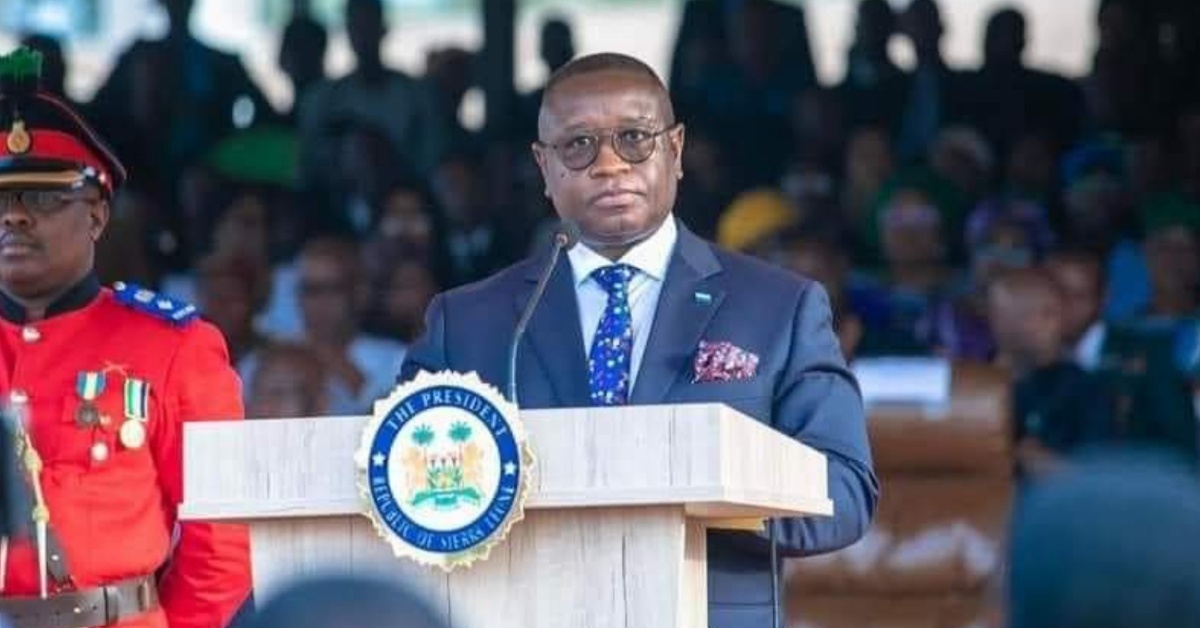A survey conducted by the Institute of Governance Reform (IGR) has revealed that a striking 72% of Sierra Leoneans believe that the nation is heading down the wrong path.
These insights were presented during the premiere of the “State of Fragility Survey Report” at IGR’s office in Freetown last week.
The Executive Director of IGR, Andrew Lavali while presenting the report said the extensive study, which collated opinions from around 1,200 participants, delved into democracy, election controversies, and economic issues.
He elaborated on the pressing economic concerns revealed by the survey adding that, “The escalating prices of essentials, combined with the Leone’s depreciation, deeply distress our citizens. The recent 40% leap in fuel prices in just a month has placed enormous strain on the majority of households.”
Lavali mentioned that this concerning economic climate is contributing significantly to the prevailing negative perception of the country’s direction, with a striking 72% of Sierra Leoneans believing that the nation is heading down the wrong path.
The report highlights a record-high 87% of Sierra Leone’s population expressing profound concerns about the country’s economic performance. A staggering 72% also voiced their belief that Sierra Leone is on an unfavourable trajectory.
On the democracy front, Lavali highlighted Sierra Leone’s unwavering democratic spirit. In a regional context, 88% of Sierra Leone’s survey participants favored democracy, outstripping the regional mean by almost 20%. Impressively, 91% firmly advocated for regular and transparent elections to choose their representatives, a sentiment second only to Liberia at 92%, and surpassing the regional norm by 17%.
Discussing the disputed election outcomes, Lavali remarked that the primary opposing force, the All People’s Congress (APC), has challenged the results without publicizing any fraud evidence. There’s a rift in perceptions among international and local observation groups regarding the election’s trustworthiness.
Lavali emphasized that election disputes have led to APC representatives’ disengagement from governance roles. Dialogue efforts between the APC and the Sierra Leone People’s Party (SLPP), facilitated by the Independent Commission for Peace and National Cohesion, persist. But Lavali voiced concerns over some entities withholding detailed election data, creating impediments.
Survey data illustrated that 62% felt the announced election results were authentic. However, a significant portion remained skeptical: 14% felt a second round was necessary, and 13% believed that Samura Kamara secured over 55% of initial votes. Notably, 89% aligned with the ruling SLPP are convinced the declared results mirror the electorate’s decision accurately.
These revelations emphasize an immediate need to implement economic recovery actions and address Sierra Leoneans’ deep-rooted apprehensions about their country’s economic trajectory.


 5 Comments
5 Comments










There’s no country that’s heading the right direction in the world.
If those polls are reliable, why they didn’t know the results of the election?
This is an APC analysis of the country. It is baseless
The global economic climate has been very volatile since the Corona Virus Pandemic and off course, the war in Ukraine. Unfortunately, these situations hits the poorest economies hardest 😢. Let’s be hopeful that things will get better and don’t use it to cause unrest and uncertainty in our country.
So many trash and self-made up analyses, why for 1 second you can’t be real to the people in Sierra Leone, and yourself? it a shame
Hmmm mmm I don’t think so oh, we must endure this direction.